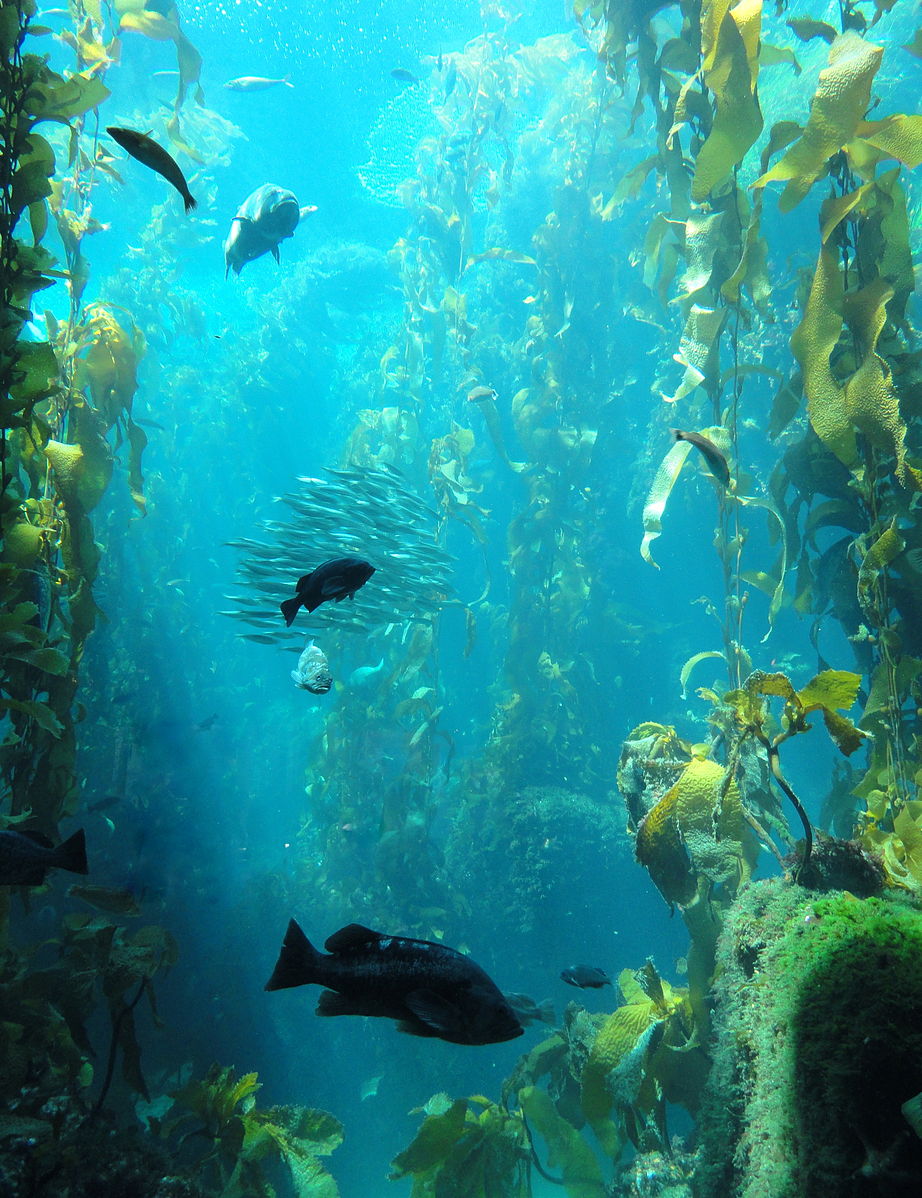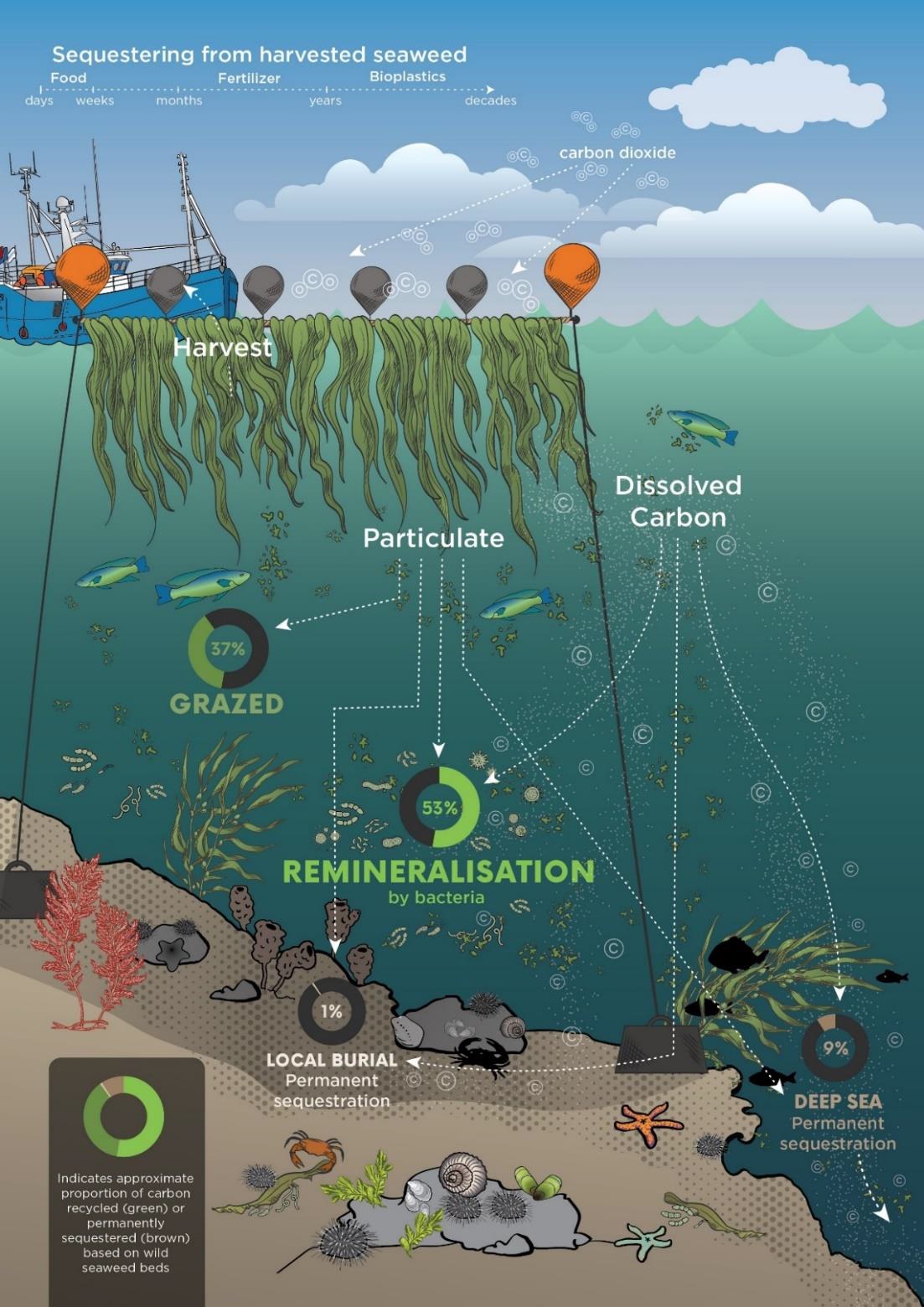blueCarbon
“Blue Carbon Services is using seaweed to draw down excessive atmospheric carbon-dioxide. As kelp naturally sheds, this organic matter containing carbon, drifts into the nearby deep ocean to remain locked away from the atmosphere for 100s to 1000s of years.”
“Global warming, even if limited to only 3°C, is estimated to cause the extinction of three out of five of the world's current species* because they cannot respond to such rapid temperature increases. *Flannery T. 2008 The Weather Makers”
Our Mission
Blue Carbon represents one of the most promising opportunities for re-establishing the earth's carbon balance.
Ideology
We aspire to make a significant contribution towards making the planet habitable for our children and future generations.
Future
If humans are to avoid mass species extinction associated with our current projection of an average temperature increase of 3°, large-scale marine carbon production and sequestration must represent one of a multifaceted group of emission reduction and greenhouse gas sequestration technologies.


How it works
Recent research has highlighted the role of macroalgae (kelp) in providing high rates of carbon sequestration due to their high net primary production and ability to create vast quantities of organic carbon detritus which, if it is sequestered into deep ocean waters (greater than 1000 m) has the potential to remain locked away from the atmosphere for hundreds and possibly thousands of years.
Blue Carbon Services Limited’s research on kelp aquaculture for carbon sequestration involves 2 strategic research projects which will hopefully strengthen the business case for investment in kelp aquaculture.
In the first instance, Blue Carbon Services, with University of Otago and Auckland University, with funding from the NZ Endeavour Fund, is studying the potential economic and environmental benefits of incorporating fast-growing kelp into existing mussel aquaculture infrastructure. The hypothesis is that kelp grown in close proximity with mussels will provide an important source of nutrition to the mussels, increasing mussel growth rate; and that water deacidification caused by rapidly growing kelp will reduce the metabolic energy required for shell (calcium carbonate) formation and that this energy will be diverted to additional lipid deposition resulting in fatter tastier mussels.
In 2021 we received another Endeavour Fund research grant to undertake a 3-year research programme with the New Zealand National Institute of Water and Atmospheric Research (NIWA) to quantify the accumulation of kelp-derived carbon in deep-sea environments (continental shelf, slope, and submarine canyons) in the vicinity of natural kelp beds. This will be achieved using stable isotope biomarkers as well as eDNA and droplet digital PCR methods. This will be combined with radiogenic techniques (210-Pb, 14-C) to determine accumulation rates and age of kelp-carbon deposits, and oceanographic models of water and sediment flows. By determining carbon concentrations, age and biological source along the length of these cores, we will establish for the first time, a relationship between NZ coastal kelp-biomass and the quantity and longevity of kelp-derived carbon sequestration in offshore benthic sediments.
We hope this will provide hard data to support current high-level estimations that globally, kelp naturally draw down, export and sequester approximately 12% of their substantial net primary production (NPP) carbon year-on-year, as organic detritus, into deep-water ocean sediments, where it is considered to be excluded from atmospheric exchange for hundreds to thousands of years. Such data will allow us to calibrate NIWA's coastal and oceanic particle dispersal models, and hopefully this will underpin the development of location specific carbon sequestration tables, and allow the inclusion of kelp-based carbon farming into the NZ Emission Trading Scheme. We expect that strategic offshore location of kelp farms would increase the natural rate of kelp detritus carbon sequestration to as much as 50% of kelp NPP (this would equate to the carbon sequestration of a Pinus radiata forest that never stops growing). On-site harvesting and extraction of high-value pharmaceuticals and nutraceuticals could be coupled with pumping of the kelp organic matter by product directly to the bathypelagic zone (> 1000 m depth) which would increase this "long-term" sequestration to perhaps 80% of NPP.
Deep-ocean carbon sequestration promises an exciting and scalable nature-based opportunity for mitigating climate change, however, the development of appropriate and cost-effective technology for doing this in its infancy. As with most emerging climate change mitigation technologies, kelp carbon farming development will require committed investors if it is to be brought to scale in time to play a significant role in climate change mitigation. Commercial development of open-ocean aquaculture using anchored culture lines is well-established but is quite expensive. Exciting potential exists in the development of mobile farm arrays positioned in mesoscale ocean eddies by submarine drones.
blue carbon in numbers
Public Research Funding
Staff and Contributors
What we have done so far ...
Research Projects
Carbon Sequestration and Mussel Productivity in Integrated Multi-Trophic Aquaculture: Smart Ideas, Endeavour Fund; Ministry for Business Innovation and Employment
Quantifying Blue Carbon: kelp contribution to carbon sequestration in marine sediments: Smart Ideas, Endeavour Fund; Ministry for Business Innovation and Employment
Big Impact
Watch this space... Momentum is building.
Ready to find out more about blue carbon?
Get in contact with us and we will send you further informations.